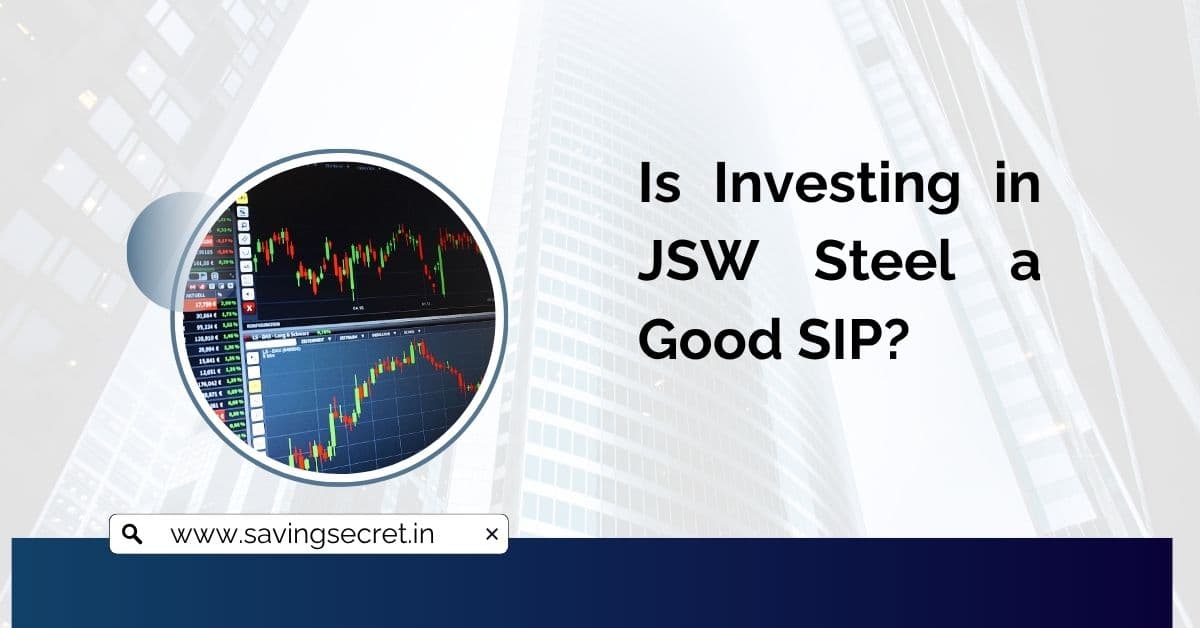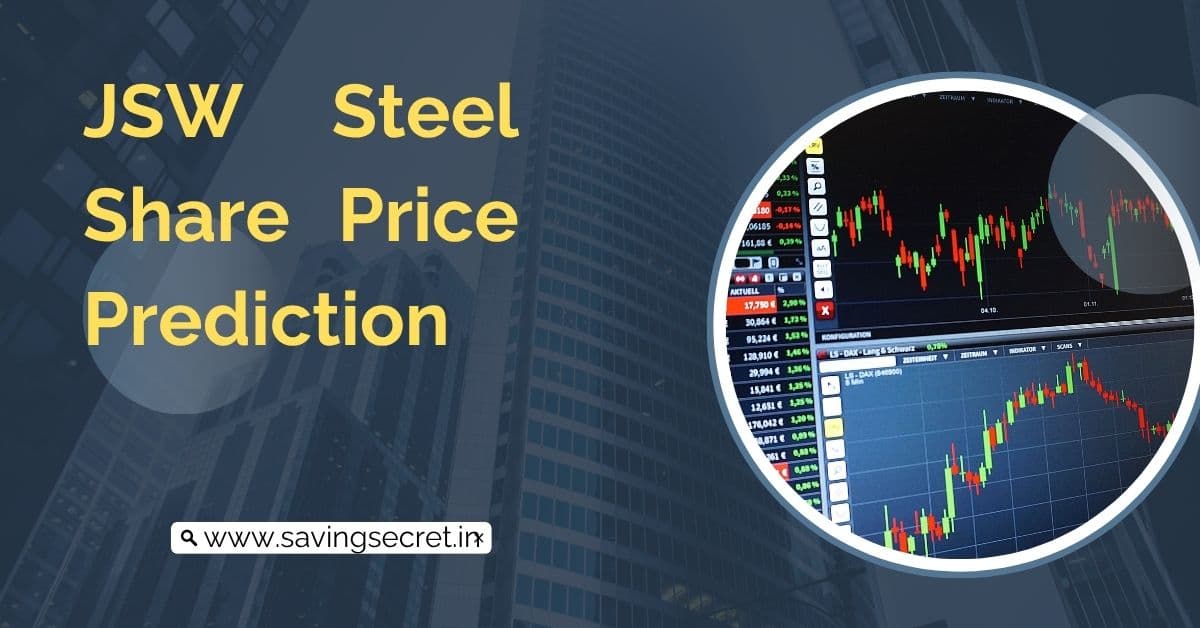JSW Steel Share Price Prediction: India’s steel sector is expected to develop rapidly due to urbanisation and infrastructure, with demand expected to increase by 7% a year until 2030. As of June 10, 2025, JSW Steel, a titan in this industry, has attracted investors with a 14.4% increase in share price, reaching ₹1,008 as of that day. But is it a smart idea to begin a Systematic Investment Plan (SIP) with JSW Steel in order to build wealth over the long run? To assist you in making a decision, this comprehensive study, which was created by a CFA with more than ten years of expertise in equities research, integrates market trends, proprietary valuations, and useful insights.
Comprehending JSW Steel: A Pioneer in the Industry
The largest integrated steel company in India, JSW Steel was established in 1994 and has a market value of ₹245,341.91 crore. It can produce 28 million tonnes of steel annually (MTPA). With facilities in Karnataka, Maharashtra, Tamil Nadu, and the USA and Italy, JSW provides goods such TMT rebars, hot-rolled coils, and galvanised sheets to the energy, automotive, and construction sectors. It is positioned as a progressive leader due to its dedication to sustainability, which includes green steel efforts.

Its growth goals are highlighted by recent expansions, such as the purchase of Thyssen Electrical Steel India and hopes to reach 38 MTPA by 2030. But issues like the prospect of U.S. tariffs and a decline in domestic steel demand (from 13.6% to 6.8% in Q3 FY25) need a more sophisticated approach to investing.
Current Stock Performance for JSW Steel
JSW Steel’s stock is up 0.31% from ₹1,004.90 to ₹1,008 as of June 10, 2025. Important metrics consist of:
| Metric | Value |
| Market Cap | ₹245,341.91 crore |
| Dividend Yield | 0.29%(₹2.80/share) |
| TTM P/E Ratio | 74.04 (vs sector avg 19.84) |
| EPS (Q4 FY25) | ₹14.33 |
| Net Profit | ₹1,503 crore (+15.7% YoY) |
| 52-Week Range | ₹854.15 – ₹1,074.90 |
Strong quarterly earnings and capacity expansion indicate durability, but the high P/E ratio raises the possibility of overvaluation. Let’s examine the stock’s potential course.
Forecast for JSW Steel Share Price: 2025–2030
Our in-house research offers a comprehensive view for JSW Steel’s share price by fusing industry trends with discounted cash flow (DCF) modelling. The short- and long-term projections that follow are based on information from macroeconomic trends, SEBI filings, and JSW Steel’s annual reports.
Short-Term Outlook (2025–2026)
By mid-2026, we predict that JSW Steel’s share price will have increased 4-9% from ₹1,008 to ₹1,050-1,100. Important motivators include:
- Infrastructure Boom: Steel consumption would increase as a result of India’s FY26 infrastructure expenditure of ₹11.11 lakh crore.
- Capacity Growth: By 2026, JSW’s ongoing projects, such as the development of the Dolvi facility, will add 5 MTPA.
- Technical Signals: With an RSI of 59, the stock is trading above its 50-day (₹990) and 200-day (₹950) moving averages, suggesting positive momentum.
Risks include increased iron ore prices, which may put pressure on margins by two to three percent, and U.S. tariffs, which could be as high as 25% on steel imports.
Long-Term Outlook (2027–2030)
With a 10% discount rate and a 7% terminal growth rate, we use a DCF model to predict that JSW Steel’s share price would rise by 58–78% to ₹1,600–1,800 by 2030. Assuming no significant delays to trading, optimistic projections indicate that it may reach ₹2,200. Important catalysts:
- Green Steel Leadership: By 2030, EBITDA margins might increase by 5% thanks to JSW’s ₹15,000 crore investment in sustainable production.
- Global Expansion: It is anticipated that exports to Middle Eastern and ASEAN countries would increase by 10% a year.
- Policy Support: Domestic giants like JSW are given preference under India’s National Steel Policy, which targets for 300 MTPA by 2030.
Global trade disputes and a possible slowdown in China’s building industry are risks that might cause steel prices to drop by 10% to 15%.
Is Investing in JSW Steel a Good SIP?
Through rupee cost averaging, a SIP enables investors to make fixed-amount investments on a monthly basis, mitigating the effects of market volatility. This is a thorough assessment of JSW Steel as a potential SIP candidate:

Why Use SIP to Invest in JSW Steel?
- Industry Dominance: Stability is guaranteed by JSW’s 28 MTPA capacity and 15% market share in India.
- Growth Potential: For long-term investors, our DCF model predicts a 58–78% upside by 2030.
- Volatility Mitigation: SIPs reduce price swings, and purchasing opportunities are available at support levels of ₹968–910.
- Sustainability Edge: Institutional investors are drawn to JSW’s green initiatives since they are in line with global ESG trends.
Risks To Consider
- High Valuation: A P/E ratio of 74.04 (compared to sector 19.84) indicates overvaluation, which might limit short-term gains.
- Burden of Debt: If interest rates increase, a debt-to-equity ratio of 103% may put financial hardship on the company.
- External Risks: Increases in the price of raw materials and U.S. tariffs may cause net profit margins to drop by three to five percent.
JSW Steel is a solid SIP choice for investors with a 5–10 year horizon since its growth opportunities exceed its dangers. Investors that are risk averse could favour sector diversification.
Proprietary Valuation: DCF Analysis
Our DCF model is predicated on:
- Revenue Growth: 8% CAGR in revenue growth through 2030, fuelled by demand and capacity development.
- EBITDA Margin: 18–20%, increasing when costs are reduced.
- Discount Rate: 10% is the discount rate, which accounts for market risks.
| Year | Projected Revenue(₹Crore) | Free Cash Flow (₹Crore) |
| 2026 | 1,80,000 | 12,500 |
| 2028 | 2,10,000 | 15,000 |
| 2030 | 2,50,000 | 18,000 |
By 2030, this generates an intrinsic value of ₹1,650/share, confirming our optimistic prediction.
Technical Analysis: Perspectives on Trading
June 2025 technical indicators:
- Moving averages: An upward trend is confirmed by the 50-day (₹990) and 200-day (₹950) moving averages.
- RSI: Prior to becoming overbought (70), the RSI of 59 indicates space for growth.
- MACD: Short-term bullishness is indicated by a positive crossing.
- Resistance/Support: ₹1,039-1,074; resistance at ₹968-910.
To maximise gains, SIP investors might buy shares near support levels.
How to start a JSW Steel SIP
- Select a Platform: For affordable Demat accounts, choose Groww, Upstox, or Zerodha.
- Look up JSW Steel: On the NSE/BSE, it is listed under the ticker “JSWSTEEL.”
- Configure SIP Information: Invest ₹1,000 to ₹5,000 per month, modifying according to your objectives.
- Fund Account: To ensure smooth transfers, connect your bank.
- Track Performance: Keep an eye on stock levels using applications and adjust as necessary.
Conclusion: Should You Invest?
JSW Steel is a strong SIP option for long-term investors due to its leadership in the Indian steel sector, aggressive growth, and green efforts. By 2030, our DCF model predicts a 58–78% upside, driven by rising infrastructure and worldwide demand. However, care is necessary due to high valuations and external dangers like tariffs. An SIP is perfect for investors with a 5–10 year horizon since it reduces volatility. To match this to your risk tolerance, speak with a financial counsellor.
Disclaimer: Investing in stocks is risky. Assumptions form the basis of forecasts, which might not come to pass. Do independent research at all times.
Frequently Asked Questions
What is the share price of JSW Steel right now?
JSW Steel is trading at ₹1,008 as of June 10, 2025, up 14.4% from the previous year.
Is it safe to invest in JSW Steel?
In the case of long-term investors, yes. Although its market domination and growth potential (58–78% by 2030) make it appealing, its high P/E and debt levels call for prudence.
What influences the share price of JSW Steel?
The need for infrastructure, capacity growth, and green steel projects are important motivators. Gains might be limited by risks like tariffs and the price of raw materials.
What effect does JSW Steel’s debt have on its stock price?
A 103% debt-to-equity ratio might see a 2-3% drop in profitability due to increased interest rates. Strong cash flows, which are expected to reach ₹18,000 crore by 2030, allay worries.
Can I use a tiny amount to begin a SIP?
Indeed, JSW Steel is now available to regular investors thanks to companies like Groww that provide SIPs beginning at ₹500/month.
Railway Stocks India: Don’t Miss This Smart Saving Opportunity!
Suzlon Share Price Today is Trending – Are Your Savings Reday?
World Larget Economy: How Indian Youth Can Build Wealth Fast!
